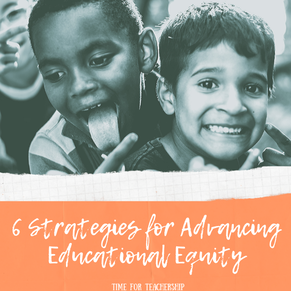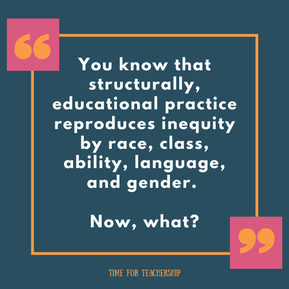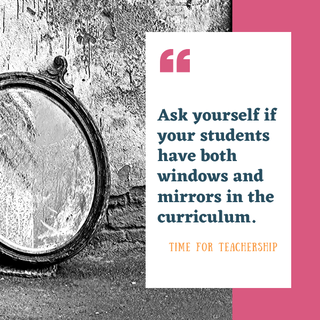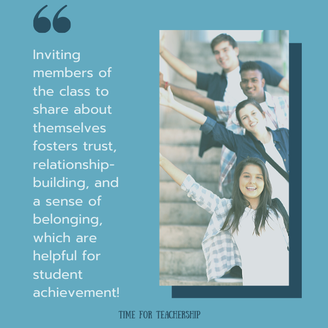|
Earlier this week, I shared 2 things you could do to lay the foundation for equity work. I also emphasized the need for specific language—calling out the form(s) of inequity you see. I painted a very quick picture of the problems and shared that this is hard but worthy work. Here’s a link to that post if you want to go back and read it before continuing with this post. Let’s get down to it. You know that structurally, educational practice reproduces inequity by race, class, ability, language, and gender. Now, what? Here are several strategies, resources, and ideas to get you started.
That should keep you busy for a while! Keep an eye out for more equity strategies on the Time for Teachership blog, in weekly emails to the community, and on my Pinterest boards, where I’m working to build up collections of resources for teachers ready to dive in deep. I’d love to hear about all of the great work you’re doing to advance equity in your educational communities. Share with me in the comments or in our private Facebook group. Finally, involve others in this work. You can start by simply sharing this post with a friend or colleague! Again this work is tough, but so incredibly powerful. It absolutely requires each of us to think big, act brave, and be our best selves.
1 Comment
Karen
7/3/2021 04:59:06 pm
This blog post has been very interesting and has given me many resources on equity. It has also got me self-reflecting on my own biases and whether they cause me to behave towards others in an inequitable way.
Reply
Leave a Reply. |
Details
For transcripts of episodes (and the option to search for terms in transcripts), click here!
Time for Teachership is now a proud member of the...AuthorLindsay Lyons (she/her) is an educational justice coach who works with teachers and school leaders to inspire educational innovation for racial and gender justice, design curricula grounded in student voice, and build capacity for shared leadership. Lindsay taught in NYC public schools, holds a PhD in Leadership and Change, and is the founder of the educational blog and podcast, Time for Teachership. Archives
May 2024
Categories |





 RSS Feed
RSS Feed